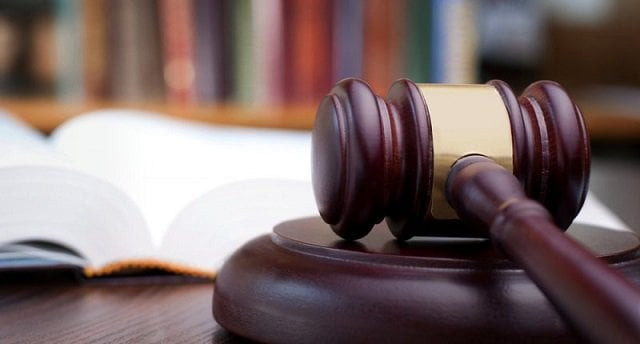Extension in judges’ retirement age stirs debate
According to Article 179, 'a judge of the SC shall hold office until he attains the age of 65'

Representational image. PHOTO: REUTERS
The discussions started after the presentation of the bill for a constitutional amendment in the National Assembly (NA) last week by two PTI lawmakers, Syed Fakhar Imam, and Amjad Khan Niazi, regarding the increase in retirement age of SC judges.
While NA Speaker Asad Qaiser deferred the bill, it's significant that the bill was presented by ruling party members and Parliamentary leader for Law and Justice Maleeka Bokhari did not oppose the introduction of the amendment to the Constitution for this purpose.
In government circles, the development has been seen as a rather serious one and consultations over it within the government circles have been going on for the last couple of weeks.
JCP to consider confirmation of seven additional LHC judges on Sep 24
A senior parliamentarian, belonging to the opposition, remarked that referring the bill to a parliamentary committee is different. “But deferring the matter is something serious and the government functionaries will raise it again at their appropriate time,” he added.
Meanwhile, a senior government functionary, while talking to The Express Tribune, claimed that the government is not behind this move. “If the matter comes up again, then the government will give its policy statement,” he said.
According to Article 179 of the Constitution, "a judge of the Supreme Court shall hold office until he attains the age of 65 years".
The Constitutional Amendment Bill 2019 proposes substituting the expression "sixty-five" in Article 179 to "sixty-eight".
Currently, the PTI-led government is not in a position to pass the constitutional amendment in the parliament due to lack of majority in both Houses.
Major political parties have, so far, stayed mum over the issue, and it is not clear whether the issue has been overlooked by them or the silence is due to any particular reason.
A senior lawyer allied with the Pakistan Muslim League-Nawaz (PML-N) believes that the party will not support this bill at a time when its leadership is being given a tough time by the apex court's top judges.
He referred to former prime minister Nawaz Sharif’s Al Azizia case, wherein the legal team itself delayed the matter till the retirement of Chief Justice Asif Saeed Khosa. The incumbent CJP's term ends in December.
According to senior Pakistan Peoples Party (PPP) leader, the party has kept a close eye on developments on the move. “I believe the party wants judicial reforms in view of the Charter of Democracy,” he said.
However, superior bars are opposed to any constitutional amendment for increasing the retirement age of SC judges from 65 to 68 years.
Former vice-chairman of the Pakistan Bar Council Kamran Murtaza says that lawyers will strongly resist any move as it's based on mala fide intention.
He believes that the motive of bringing this bill is to curry favor with certain judges. “I believe the SC judges will take all decisions in accordance with the law,” Murtaza added.
Another senior lawyer, who also held key posts, believes that former president Pervez Musharraf introduced a similar move to increase the retirement age of judges. However, he says that senior judges, who were in line to become CJP, were unhappy with the move.
Likewise, superior bars, led by Hamid Khan, registered a strong protest against then CJP Sheikh Riaz over the increase in retirement age.
One section of lawyers believe that if this amendment is made, then-incumbent CJP Khosa would be the main beneficiary as he is set to retire in December. They say that though this is a private bill, it is driven by PTI’s desire to extend the incumbent CJP’s stay as he ‘hasn’t ruffled the government’s feathers’ with any of his judgments.
The section of lawyers contends that the opposition has failed to get any relief from the courts, which means that the ruling party is satisfied with the current judicial policy in political matters.
However, another section believes that CJP Khosa's speech at the start of the new judicial year was alarming for the government.


















COMMENTS
Comments are moderated and generally will be posted if they are on-topic and not abusive.
For more information, please see our Comments FAQ